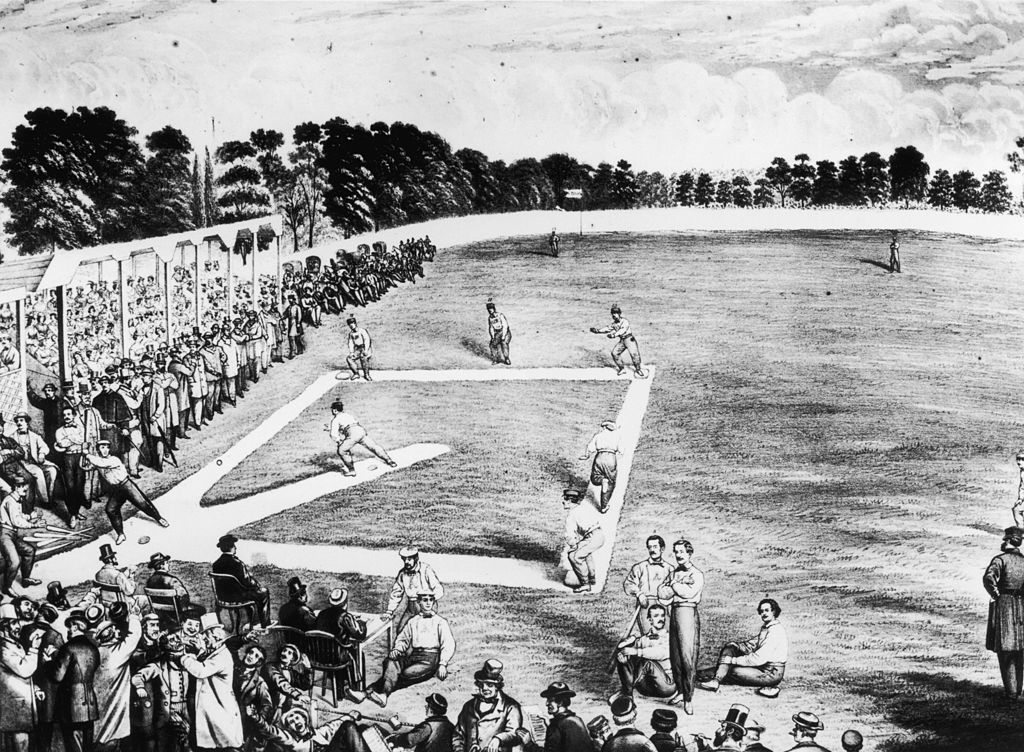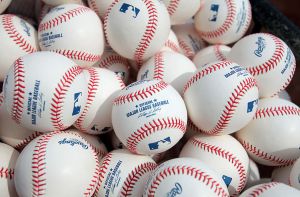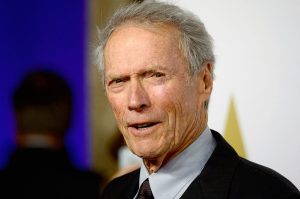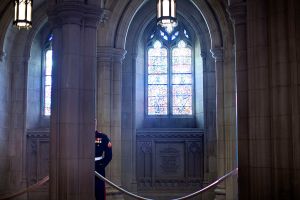Batavia, New York
For years I was vice president of the Batavia Muckdogs, one of the only community-owned teams in professional baseball. (There is no ownership setup more roundly detested by profit-minded speculators in pro sports.) We teetered on the financial ledge, the poor sister of the New York-Penn League, and it wore on us. Sometimes during a game I would stare at one of the faithful — maybe Alice, a lifelong fan whose bandana covered a head balded by cancer treatments; or Mark, a retarded older man whose imagination, like mine, was coterminous with Dwyer Stadium’s boundaries — and think how crushed he or she would be if we lost our team.
As it happens, we lost Alice and Mark before we lost the team, but this past offseason the dead souls who run Major League Baseball (MLB), and who believe that sentiment and history are for losers, terminated the New York-Penn League. They just up and killed it as part of a bloodbath that reduced the number of minor-league baseball teams from 160 to 120. Even those surviving six score franchises are grim visaged today, for minor league baseball as a quasi-independent entity has been abolished, and its relicts are locked into the fetid antechambers of Major League Baseball.
A circuit that was born in Batavia in 1939 (as the PONY, the Pennsylvania-Ontario-New York League) died in Manhattan’s oppressive Time-Life Building, apt headquarters of MLB, during the winter of COVID-19.
The chief executioner, I regret to say, is a native Upstate New Yorker named Rob Manfred, MLB commissioner, who announced the slaughter using words like ‘modernizing’, ‘prioritized’ and ‘unrivaled technology’: the argot of an android destroying what it does not understand.
As if pulling the plug on 40 teams and their host communities weren’t enough, MLB also renamed the remaining leagues. It’s as if a dull-witted 1970s East German bureaucrat had been named Commissar of Nomenclature. So the International League, founded in 1884 — the cleverly monikered Trenton Trentonians won its first championship — is now denominated Triple A-East. The teams of the storied Sally (South Atlantic) League have been parceled out to High-A East and Low-A East. The Pacific Coast League, pride and joy of prewar California baseball, is now Triple A-West.
What sort of automaton thinks that these generic handles are superior to historic appellations? Wouldn’t even the most cynical and sleazy Madison Avenue image-meister urge the retention of the old and fabled names, if only as a nostalgia-soaked marketing ploy?
Well, to hell with them. Because you know what? The Batavia Muckdogs are the men they couldn’t hang. We have resurfaced in the sillily-named but fine-quality Perfect Game Collegiate Baseball League, an amateur summer division for college ballplayers who are considered potential pro prospects. Players will board with local families, as was the practice in the NYP League until the majors put the kibosh on it. We’re no longer community-owned, but the new proprietors hail from Elmira, New York, hometown of Mark Twain’s wife Livy. This is a good sign, since reports of our death, like Twain’s, were greatly exaggerated.
Unlike the pros, the PGCBL encourages teams to sign a local lad or two. The reborn Muckdogs will include the son of a fellow I used to play ball with and also the grandson of friends.
I detect faint but discernible echoes of the town baseball leagues that flourished into the 1940s, with their fierce place-based rivalries. This spirit endures in modified form at the high-school level, although the consolidation of school districts into multi-town agglomerations dulled the edges and muted the passions.
Enraged as I was by Manfred’s massacre of the minors, I’m starting to think that ours was a promotion by demotion. For what is true in life is true in baseball is true in politics. Localize. Decentralize. Break down the overly large into a smaller and more human scale. I mourn the death of the minors but perhaps it presages the death of the majors, or at least the rebirth of baseball in organized forms that respect the local, the idiosyncratic, the unregimented.
I’m here to tell you that there is life after major league-affiliated baseball, just there will be life after the welcome and deserved collapse of the American Empire. The 2021 Muckdogs begin their season in early June. I’ll be there in the third-base bleachers, surrounded by friends and family and the ghosts of all those — like Alice and Mark — who have hallowed these grounds.
This article was originally published in The Spectator’s May 2021 World edition.


















